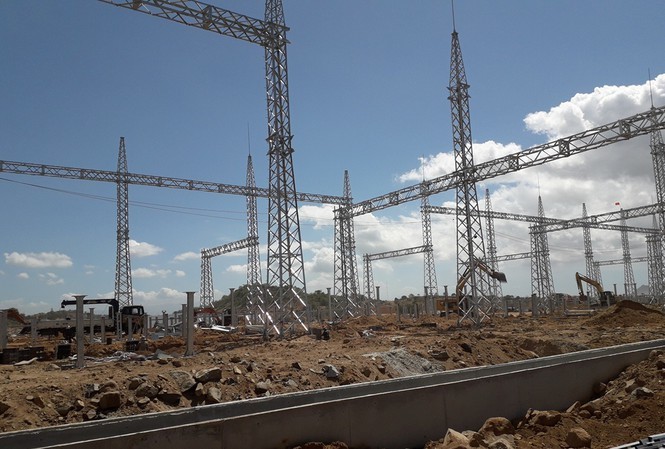Southern region to face severe electricity shortage
ABO/VNA - The southern region may face severe electricity shortage starting from 2021, according to the Electricity of Vietnam Group (EVN).
The problem was discussed during a conference about sustainable development of grid-connected renewable energy and rooftop solar power held by the Ministry of Industry and Trade on July 9 in HCM City.
The report by EVN shows that from 2021 to 2025, the southern region will face worsening electricity shortage. It is predicted that the southern region will face a shortage of 3.7 billion kWh in 2021, nearly 10 billion kWh in 2022 and 12 billion kWh in 2023. In 2019 and 2020, EVN said that they had to use oil-fueled thermal power plants which are very costly to produce 1.7 billion kWh in 2019 and 5.2 billion kWh in 2020.
 |
Deputy Minister of Industry and Trade Hoang Quoc Vuong said as demand for electricity increased by 7.5% to 8% a year, the power sector has faced many difficulties especially when they have already highly exploited hydropower plants. Vietnam also has to import coal and gas while many thermal power plant projects are stagnant.
Vietnam's total power capacity is 55,000MW. If 2020 projects are completed as scheduled, the total power capacity will reach 60,000MW. Meanwhile, the Power Plan VII adjusted for the view to 2025, Vietnam's power capacity must reach 90,000MW.
"That means renewable energy like wind and solar power is especially important to serve socio-economic development and help ease the pressure on the national power grid," Vuong said.
He went on to say that the government has issued many incentives to encourage investments in renewable energy. Up to 4,500MW has been contributed to the national grid and the local people installed rooftop solar panels to produce 500MW. Many renewable energy projects with a total capacity of 5,000MW are being completed in order to go into operation in 2021.
However, there are still many challenges such as outdated infrastructure. Many wind and solar power projects in Ninh Thuan and Binh Thuan provinces can't run at 100% capacity during certain hours. Meanwhile, solar power panels are expensive for local people and firms.
(Source: VNA)
 về đầu trang
về đầu trang







